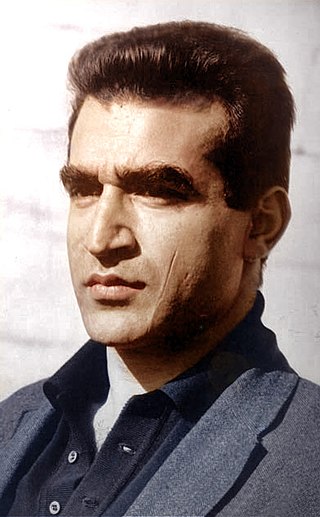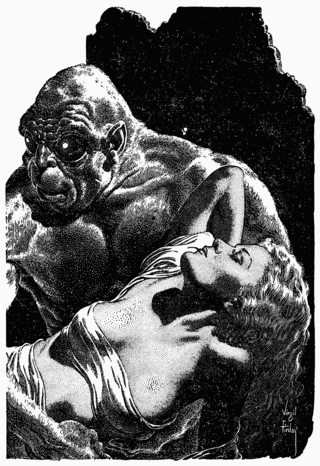
FM-2030 was a Belgian-born Iranian-American author, teacher, transhumanist philosopher, futurist, consultant, and Olympic athlete.

Transhumanism is a philosophical and intellectual movement that advocates the enhancement of the human condition by developing and making widely available new and future technologies that can greatly enhance longevity, cognition, and well-being.

David Pearce is a British transhumanist philosopher. He is the co-founder of the World Transhumanist Association, currently rebranded and incorporated as Humanity+. Pearce approaches ethical issues from a lexical negative utilitarian perspective.
Singularitarianism is a movement defined by the belief that a technological singularity—the creation of superintelligence—will likely happen in the medium future, and that deliberate action ought to be taken to ensure that the singularity benefits humans.

James J. Hughes is an American sociologist, bioethicist and futurist. He is the Executive Director of the Institute for Ethics and Emerging Technologies and is the Associate Provost for institutional research, assessment, and planning at University of Massachusetts Boston. He is the author of Citizen Cyborg: Why Democratic Societies Must Respond to the Redesigned Human of the Future and is currently writing a book on secular Buddhism and moral bioenhancement tentatively titled Cyborg Buddha: Using Neurotechnology to Become Better People.
The Institute for Ethics and Emerging Technologies (IEET) is a technoprogressive think tank that seeks to "promote ideas about how technological progress can increase freedom, happiness, and human flourishing in democratic societies." It was incorporated in the United States in 2004, as a non-profit 501(c)(3) organization, by philosopher Nick Bostrom and bioethicist James Hughes.
Many of the tropes of science fiction can be viewed as similar to the goals of transhumanism. Science fiction literature contains many positive depictions of technologically enhanced human life, occasionally set in utopian societies. However, science fiction's depictions of technologically enhanced humans or other posthuman beings frequently come with a cautionary twist. The more pessimistic scenarios include many dystopian tales of human bioengineering gone wrong.

Giulio Prisco is an Italian information technology and virtual reality consultant; as well as a writer, futurist, transhumanist, and cosmist. He is an advocate of cryonics and contributes to the science and technology online magazine Tendencias21. He produced teleXLR8, an online talk program using virtual reality and video conferencing, and focused on highly imaginative science and technology. He writes and speaks on a wide range of topics, including science, information technology, emerging technologies, virtual worlds, space exploration and futurology.
Body hacking is the application of the hacker ethic in pursuit of enhancement or change to the body's functions through technological means, such as do-it-yourself cybernetic devices or by introducing biochemicals.

Posthuman or post-human is a concept originating in the fields of science fiction, futurology, contemporary art, and philosophy that means a person or entity that exists in a state beyond being human. The concept aims at addressing a variety of questions, including ethics and justice, language and trans-species communication, social systems, and the intellectual aspirations of interdisciplinarity.

The Transhumanist Wager is a 2013 science fiction novel by American author Zoltan Istvan. The novel follows the life of Jethro Knights, a philosopher whose efforts to promote transhumanism ultimately lead to a global revolution. It was a first-place winner in visionary fiction at the International Book Awards.

Zoltan Istvan Gyurko, professionally known as Zoltan Istvan, is an American transhumanist, journalist, entrepreneur, political candidate, and futurist.

Gennady Stolyarov II is an American libertarian and transhumanist writer, actuary, and civil servant known for his book Death is Wrong. Stolyarov also leads two transhumanist political parties.
The Transhumanist Party is a political party in the United States. The party's platform is based on the ideas and principles of transhumanist politics, e.g., human enhancement, human rights, science, life extension, and technological progress.

The term directed evolution is used within the transhumanist community to refer to the idea of applying the principles of directed evolution and experimental evolution to the control of human evolution. Law professor Maxwell Mehlman has said that "for transhumanists, directed evolution is likened to the Holy Grail".

Transhumanist politics constitutes a group of political ideologies that generally express the belief in improving human individuals through science and technology. Specific topics include space migration, and cryogenic suspension. It is considered the opposing ideal to the concept of bioconservatism, as Transhumanist politics argue for the use of all technology to enhance human individuals.
Mark O'Connell is an Irish author and journalist. His debut book, To Be a Machine, was published in 2017, followed by Notes from an Apocalypse in 2020. His third book, A Thread of Violence, was published in 2023. He has written for publications including The New Yorker, The New York Times Magazine, The New York Review of Books, and The Guardian. He is also the author of the Kindle Single Epic Fail: Bad Art, Viral Fame, and the History of the Worst Thing Ever, as well as an academic study of the novels of John Banville.

The Immortality Bus is a 1978 Wanderlodge that has been made to appear as a 38-foot brown coffin.

Immortality or Bust is a 2019 feature documentary focusing on the 2016 U.S. presidential campaign of Transhumanist Party nominee Zoltan Istvan. Directed by Daniel Sollinger, it won two awards at film festivals - the Breakout Award at the 2019 Raw Science Film Festival and Best Biohacking Awareness Documentary at the GeekFest Toronto 2021. It is distributed by Gravitas Ventures.
The Transhumanist Bill of Rights is a crowdsourced document that conveys rights and laws to humans and all sapient entities while specifically targeting future scenarios of humanity. The original version was created by transhumanist US presidential candidate Zoltan Istvan and was posted by Zoltan on the wall of the United States Capitol building on December 14, 2015.












